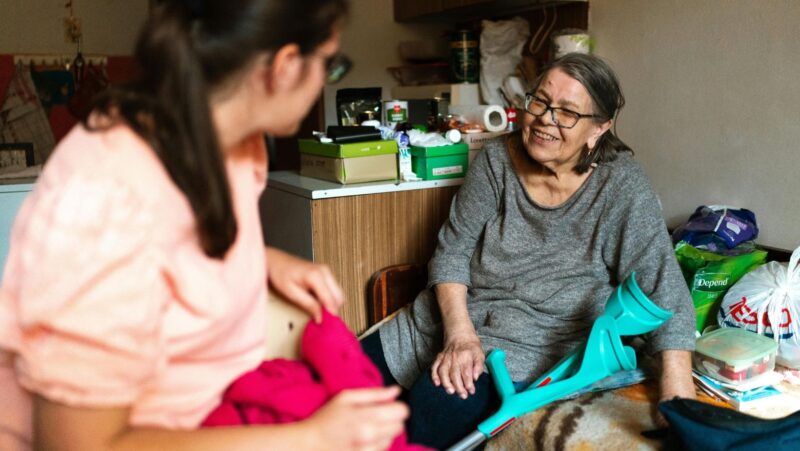
If you’re a parent worried about your son’s growing self-focus, big reactions to criticism, or “rules don’t apply to me” attitude—you’re not alone. Some level of self-absorption is common in adolescence. But when patterns become persistent (grandiosity, low empathy, intense need for praise, entitlement), it may signal clinically meaningful narcissistic traits. This guide explains what to watch for, how it can affect mental health, and what supportive next steps look like.
Quick note: This article is for education, not diagnosis. If your teen is unsafe or in crisis, call local emergency services or your country’s crisis line (U.S. parents can dial/text 988).
First things first: trait vs. disorder
Narcissism exists on a spectrum. Teens can show narcissistic traits (e.g., bragging, needing to be “the best,” dismissing others’ feelings) without meeting criteria for Narcissistic Personality Disorder (NPD)—a diagnosis that involves a long-standing, inflexible pattern causing real impairment. Most teens who show traits do not go on to develop NPD, and many mature out of the edgiest behaviors with support and limits. ncbi.nlm.nih.gov
Early signs parents often notice
Grandiose self-image (“I’m better than everyone,” “teachers are dumb”).
Fragile self-esteem under feedback (anger, blame, or shutdown after small critiques).
pLow empathy (minimizes others’ feelings; struggles to apologize).
Entitlement (different rules for me; fairness only when it benefits me).
Exploitative friendships (uses peers for status; drops them when needs aren’t met).
Online performance focus (follower counts, “winning” arguments, risky stunts).
Seeing a few of these occasionally is typical teen behavior; the pattern, intensity, and impact at home/school are what matter.
Why might this be happening? (what research suggests)
Parenting signals matter. A 4-wave longitudinal study found that parental overvaluation—consistently telling children they’re more special than others—predicted higher narcissism over time (while warmth predicted healthy self-esteem without narcissism). Embedding realistic praise and empathy tends to be healthier than inflating status. Source: PNAS study on parental overvaluation. pnas.org+2PubMed+2
Sex differences exist on average. A large meta-analysis (475k+ participants across ~30 years) found males score higher than females in narcissism overall—particularly on entitlement and authority/leadership dimensions. That doesn’t mean every boy is narcissistic; it’s an average difference that may shape how traits show up in teen boys. Source: Psychological Bulletin meta-analysis. PubMed+1
How these traits can affect mental health
Unchecked narcissistic patterns can strain friendships, increase conflicts with teachers/parents, and reinforce all-or-nothing thinking (“I’m a winner or I’m nothing”), which may worsen anxiety or irritability. Difficulties with emotion regulation can also tie into aggression or risky choices for some teens—another reason to address patterns early with skill-building, not shame. pmc.ncbi.nlm.nih.gov
A compassionate plan you can start today
1) Lead with connection.
Open with curiosity (“Help me understand what happened”) rather than labels. Validate feelings first, then set limits: “I can see that felt unfair; it’s still not okay to insult your sister.”
2) Model realistic praise.
Praise effort, strategies, and kindness instead of global superiority. (“You kept trying even when math was hard” > “You’re the smartest.”) This builds sturdy self-esteem without feeding status inflation. pnas.org+1
3) Teach empathy as a skill.
Use brief perspective-taking prompts: “What did your friend hope would happen?” “If that were you, what would you need to hear?” Practice apologies that name the impact (“I interrupted you and that was disrespectful.”)
4) Set clear, consistent boundaries.
Tie privileges to responsibilities; follow through calmly. Teens learn that admiration isn’t a free pass.
5) Reduce comparison fuel.
Agree on healthy social-media habits (time limits, no late-night scrolling, curate feeds). Replace “ranking” talk with personal goals and values.
6) Build real competencies.
Encourage activities that develop teamwork, service, and frustration tolerance (sports, band, volunteering, part-time jobs). Real-world cooperation grows humility and resilience.
When to consider professional support
Patterns last 6+ months and cause problems at school, home, or with friends.
Your teen shows aggression, bullying, substance use, or self-harm.
Family conversations are locked in power struggles.
A licensed therapist (e.g., LMHC, LCSW, psychologist, psychiatrist) can coach emotion regulation, empathy, and flexible thinking, and work with parents on boundaries that stick. For a deeper parent guide focused on narcissism in teenage males, you can also review this guide from Avery’s House: narcissism in teenage males.
How a therapist will typically help
Assess pattern & risk (traits vs. disorder; co-occurring anxiety, ADHD, depression).
Cognitive & skills work (challenge “special rules,” build tolerance for feedback).
Family sessions (repair ruptures; align rules across caregivers).
School collaboration (behavior plans emphasizing accountability + support).
What to say to your teen (scripts that help)
“I care about you more than your achievements. I’m proud when you’re kind and honest—even when no one sees it.”
“Criticism stings. Let’s practice taking a breath, finding one small takeaway, and moving forward.”
“Being confident and being better than others aren’t the same thing. Let’s set goals that make you proud.”
Bottom line
Teens need warmth plus limits. You don’t have to choose between protecting your son’s confidence and curbing entitled, empathy-light behaviors. With connection, practice, and consistent boundaries, most boys can grow toward a steadier, more caring version of confidence.












